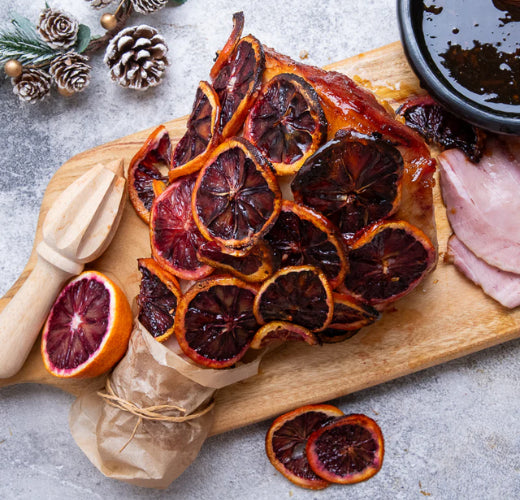When someone you care about experiences loss, finding the right gift for grief can feel overwhelming. The death of a loved one brings profound sorrow, and while traditional sympathy gifts like flowers and cards offer comfort, food provides something uniquely powerful: practical nourishment that supports both body and spirit during life’s most difficult moments.
This guide explores ideas on how thoughtful food gifts can provide meaningful support during times of grief, why certain foods offer more comfort than others, and how to navigate offering care without overwhelming someone who’s already struggling. Food gifts can play a vital role in coping with the emotional aftermath of death, offering comfort and support as individuals process their loss.

The Deep Connection Between Food and Healing
Food represents far more than sustenance when someone is grieving. It embodies care, community, and the continuation of life itself. For centuries, cultures worldwide have understood this connection—from Jewish shiva meals to casseroles brought to grieving families, food has always been how we show support when words fall short.
During grief, the simple act of preparing meals can feel impossible. Decision-making becomes difficult, appetite disappears, and even opening the fridge can feel overwhelming. This is where thoughtful food support becomes not just meaningful, but essential.
Research shows that proper nutrition directly impacts our ability to cope with emotional trauma. When we're mourning, our bodies need extra nutrients to manage stress and maintain energy levels. Yet grief often suppresses appetite and makes food choices feel impossible. A well-chosen sympathy gift basket or prepared meal removes these barriers while providing necessary nourishment.
The beauty of food as a grief support tool lies in its immediate practicality. Unlike other sympathy gifts that might require emotional energy to appreciate, food fills an urgent need. It provides comfort and warmth while allowing the grieving person to decide when and how to engage with this gesture of care.

How Grief Affects Eating Patterns
Understanding how grief impacts eating habits helps us offer more meaningful support. Grief isn't linear, and neither are the food needs of someone experiencing loss. Different stages of mourning bring different challenges.
In the immediate aftermath of loss, many people experience complete appetite loss. The body's stress response suppresses hunger signals, making even the thought of food unappealing. Others may eat emotionally, seeking comfort in familiar tastes that trigger positive memories. Some simply forget to eat, their minds so focused on their loss that basic self-care becomes forgotten.
Children experiencing grief face unique challenges. They may reject unfamiliar foods when everything feels uncertain, or eat only comfort foods that remind them of happier times. Parents who are grieving often struggle to maintain regular meal routines, making community support even more critical.
As grief evolves, so do food needs. Someone who couldn't eat anything in the first week might later crave specific comfort foods. Understanding this progression helps us provide ongoing support rather than just immediate assistance.
Choosing the Right Foods for Comfort
Not all comfort foods work equally well for grief support. The most thoughtful food gifts balance emotional comfort with nutritional support, providing both solace and practical nourishment. Baked goods offer small moments of joy—think cakes, pies, biscuits, and cookies—while also being easy to share and enjoy with others.
Nutritionally Supportive Options
When creating a sympathy gift box or choosing prepared meals, consider including a personalised note along with protein-rich options that provide sustained energy. Soups work wonderfully because they're easy to digest, warming, and can be heated quickly when cooking feels impossible. Broths and stews provide hydration alongside nutrition, crucial for someone who may not be drinking enough water.
Foods containing omega-3 fatty acids and B vitamins support brain health during stress. Ready-made meals featuring fish, lean meats, or legumes offer these benefits without requiring preparation. Complex carbohydrates help stabilise mood and energy levels—think wholesome casseroles, rice dishes, or hearty pasta meals that reheat easily.

Emotionally Comforting Choices
The most meaningful food gifts often include items that trigger positive memories or provide familiar comfort. Baked goods offer small moments of joy and can be shared with visitors or saved for quieter moments. Warm beverages create opportunities for peaceful, comforting rituals.
Consider foods that require minimal effort to consume. Individual portions, easy-to-reheat meals, or items that can be eaten at any temperature respect the reality that grief often makes even basic tasks feel overwhelming.
Practical Considerations
The best sympathy gifts truly serve the recipient's needs. Choose foods that reheat well and store easily. Individual portions often work better than family-sized dishes, allowing the grieving person to eat according to their appetite without waste or pressure.
Shelf-stable items provide long-term support, ensuring options remain available weeks later when other support has faded. Include items that require no preparation—the goal is removing barriers to eating, not creating additional tasks.
When and How to Offer Food Support
Timing matters significantly when offering food support. The immediate aftermath of loss often brings an abundance of casseroles and baked goods, but support frequently disappears after the first week when the grieving person may need it most.
Consider offering support during forgotten moments—first holidays, anniversaries, or simply a random Tuesday months later when a heartfelt message may be especially appreciated as grief feels particularly heavy. Having food gifts delivered directly to the recipient's doorstep adds both convenience and a personal touch, making your gesture even more thoughtful. These unexpected gestures often mean more than predictable support immediately following loss.
The Right Approach
Instead of asking "What can I bring?" try saying "I'm organising dinner for Tuesday—would 6 PM work, or would another time suit better?" This approach removes decision-making burden while respecting their schedule and preferences.
When preparing a food gift, include a personalised note explaining what's included and how items can be prepared. Coordinate with other supporters to avoid overwhelming the household while ensuring consistent care.
Cultural sensitivity matters when choosing foods. Consider dietary restrictions, religious requirements, and personal preferences. When uncertain, opt for neutral options or consult close family members for guidance.
What to Avoid When Offering Food Support
Well-meaning gestures can sometimes miss the mark. Understanding what to avoid helps ensure your support truly serves the grieving person.
Never assume someone wants company while eating. Some find comfort in shared meals; others prefer solitude during vulnerable moments. Include a note clarifying that no response or interaction is expected—this removes pressure and allows them to contact you as they choose.
Avoid foods requiring immediate attention or complex preparation. Dishes needing assembly, specific timing, or quick consumption add stress rather than providing comfort. Similarly, avoid items with very short shelf lives unless you're certain they'll be used promptly.
Don't overwhelm with too many options. While variety seems thoughtful, excessive choices can feel paralysing to someone whose decision-making is compromised. A carefully curated selection of 3-4 items often works better than overwhelming variety.
Supporting Different Types of Grief
Different situations require different approaches to food support. Families with young children need options appealing to kids while providing proper nutrition during disrupted routines. Consider familiar snacks, simple meals, and comfort foods that maintain some normalcy.
Elderly individuals may have specific dietary needs or limited preparation abilities. Soft, easy-to-digest options, individual portions, and meals requiring minimal heating work well. Don’t forget hydration—herbal teas, broths, and warming beverages provide comfort alongside necessary fluids.

Pet loss requires the same compassion as any other grief. Memorial gifts for a dog or cat, such as photo frames to fill with a favourite picture or wind chimes to hang in a special place, can help honour the memory of beloved pets. Personalised items for pets can provide comfort and support for someone grieving the loss of a friend. While some may view losing a beloved companion as less significant, the grief is real and deserving of support. Simple comfort foods and ongoing care help someone navigate this difficult time.
Long-distance support presents unique challenges but remains important. Many services now offer sympathy gift delivery, allowing meaningful support even when physical presence isn’t possible. Writing a personal note or letter can create a meaningful moment of connection, even from afar. Include personalised notes explaining your thoughts and care.
Encouraging Self-Care During Grief
Encouraging self-care during grief is a gentle yet powerful way to support someone as they navigate the pain of loss. When a loved one is experiencing loss, it can be difficult to find the right words or actions to express your sympathy. In these moments, a thoughtful gift—such as a sympathy gift basket or sympathy gift box—can offer comfort and remind the grieving person that they are not alone during this difficult time.
A well-chosen sympathy gift can go beyond food to include items that nurture both body and spirit. Including a personalised note in your gift box allows you to share heartfelt words, memories, or simply let the recipient know you are thinking of them. Other self-care items, such as heat packs, cozy blankets, or soothing teas, can provide warmth and solace, encouraging the grieving person to take moments for themselves when sadness feels overwhelming.
Self-care is not just about physical comfort—it’s also about creating space for healing. Sometimes, the most meaningful support comes from simply being present. Sharing a quiet meal, watching a favourite movie together, or just sitting in silence can offer a sense of companionship and understanding. It’s important to respect the grieving person’s boundaries, allowing them the space they need to process their feelings while still letting them know you are there.

Creating a living tribute or memorial can also be a beautiful way to honour the memory of a loved one. Planting a tree, lighting a candle, or gifting a personalised item that holds special meaning can help keep their memory alive and provide a source of hope and comfort. These acts of remembrance can be a powerful part of the healing process, offering a tangible way to celebrate a life well-lived and the love that endures.
Ultimately, supporting someone through grief is about showing kindness, compassion, and understanding. Whether you choose to send a sympathy gift, spend quality time together, or help create a meaningful tribute, your thoughtful gestures can help the grieving person feel supported and cared for. By encouraging self-care and fostering a sense of community, you can help your loved one find moments of solace and begin to heal, one small act of kindness at a time.
Creating Lasting Support Through Food
The most meaningful food support recognises that grief extends far beyond the immediate crisis. As someone moves through their mourning process, their relationship with food evolves, and thoughtful supporters acknowledge these changing needs.
Months after loss, many people crave foods reminding them of their loved ones or happier times. This might be when asking about favourite recipes or meaningful meals becomes appropriate. Offering to help prepare these special dishes can beautifully honour memories while providing ongoing support.
Holiday seasons and anniversaries often bring renewed grief, making food support particularly meaningful. Consider sending thoughtful meals during the first Christmas, birthday, or anniversary. Planting a tree or giving a potted plant can also serve as a lasting tribute to loved ones. These gestures show continued care even when acute crisis has passed.
As healing progresses, some find comfort in returning to cooking as self-care and remembrance. Supporting this transition might involve sharing simple recipes, offering to cook together, or providing quality ingredients for someone ready to engage with food preparation again.
How FoodSt Supports Families Through Difficult Times
At FoodSt, we understand the profound impact thoughtful food gifts can have during grief and the hope they can instill in challenging times. Our community of home cooks has witnessed how authentic, home-cooked meals provide comfort when words aren’t enough, which is why we’ve carefully developed our bereavement bundles to support families experiencing loss.
Our bereavement and get-well-soon bundles recognise that during difficult times, the last thing someone should worry about is meal planning. Each bundle includes nourishing, easy-to-prepare meals that can be stored frozen and heated when needed, removing the cooking burden during mourning.
What makes our approach different is the authentic care behind each meal. Every dish is prepared by real people in real kitchens—local cooks who understand that food is more than sustenance. It’s comfort, connection, and care made tangible.
Our bundles include wholesome options like nourishing chicken soup, hearty lasagne, and comforting curries—meals that provide both nutritional support and emotional comfort. Each bundle can be customised for dietary requirements and includes a personalised note expressing your sympathy.
We deliver across NSW, QLD, VIC, and ACT, ensuring your thoughtful gift reaches those who need it most, regardless of distance. Our sustainable packaging keeps meals fresh, and our delivery service handles logistics so you can focus on what matters—showing support during someone’s most difficult time.
Ready to support someone through their difficult time? View FoodSt's full menu to browse our full collection of meals, and sympathy and bereavement gifts.

Small Gestures, Lasting Impact
Supporting someone through grief with food isn't about grand gestures or elaborate preparations; it's akin to offering a warm hug in a time of need . It's about recognising a fundamental human need and responding with compassion and practical care. Whether through a carefully chosen sympathy gift basket, home-cooked meals, or ongoing food support, these acts of kindness create space for healing while honouring the memory of those we've lost.
The most powerful food gifts understand that grief is a marathon, not a sprint. They provide immediate comfort while acknowledging the long journey ahead. They respect individual needs while demonstrating community support. Most importantly, they remind grieving individuals that they're not alone—that their community cares enough to ensure they're nourished during their darkest moments.
If you're moved to support someone through grief with food, trust that instinct; the truth is, your compassion can make a significant difference . Your compassion, expressed through thoughtful nourishment, might provide exactly the comfort someone needs to take their next step forward. Because sometimes, when words fail, food speaks the language of love and care that grieving hearts most need to hear.
Ready to support someone through their difficult time? Explore our bereavement bundles and let us help you show you care when it matters most.
FAQ's
1. What are the best food gifts to send someone who is grieving?
The best food gifts for someone in mourning are nourishing, comforting, and easy to prepare. Think soups, stews, baked goods, and ready-made meals that require minimal effort. These meals provide both emotional comfort and practical support.
2. How can I support a grieving friend from a distance?
If you’re far away, sending a bereavement meal bundle or sympathy food box can be a powerful way to show you care. Pair it with a heartfelt note or message—FoodSt offers a personalised note for all gifts.
3. What type of meals help during grief?
Meals that are soft, warm, easy to reheat, and high in nutrients are ideal. Soups, casseroles, and familiar comfort foods are often well received, especially when decision fatigue or loss of appetite sets in.
4. Why is food such a meaningful gift after a loss?
Food provides immediate relief—it’s tangible, practical, and comforting. During grief, when basic tasks feel overwhelming, having meals ready to go can reduce stress and offer a sense of care and support without requiring anything in return.
5. What should I avoid when giving food to someone grieving?
Avoid meals that require assembly, have a short shelf life, or come in large portions that may go to waste. Also steer clear of anything requiring decisions—grief can make even simple choices feel hard.
6. What do you put in a sympathy food package?
A good sympathy meal package includes a mix of comforting meals (like soups, pasta, or curries), small treats (like cookies or muffins), and easy-to-heat dishes. Adding a personalised note makes it even more meaningful.






Leave a comment (all fields required)